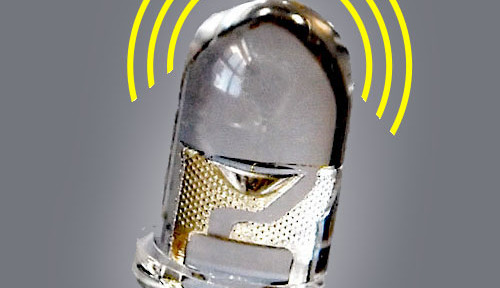Radio interference from LED light bulbs?

The German Amateur Radio Club (DARC) has issued a press release identifying domestic LED light bulbs as a source of electrical interference. The increasing popularity of these light sources has led to a significant increase in reports of radio traffic disturbance, interruption of radio services and even poor DAB reception. In their opinion, the electrically noisy LED lamps are a result of a bad government policy which simply ignores regulations applicable to EMC and the generation of EMI by electrical equipment...
The German Amateur Radio Club (DARC) has issued a press release identifying domestic LED light bulbs as a source of electrical interference. The increasing popularity of these light sources has led to a significant increase in reports of radio traffic disturbance, interruption of radio services and even poor DAB reception. In their opinion, the electrically noisy LED lamps are a result of a bad government policy which simply ignores regulations applicable to EMC and the generation of EMI by electrical equipment.
According to DARC, the recommendations outlined in the regulations governing electromagnetic compatibility have simply been ignored. The result is that LED lamps currently on sale and in use generate considerable wideband RF interference. The German station Bavaria Radio has also pointed out the problem on its web page. Mains LED lamps employ an integrated switching controller to power the LEDs from the high-voltage mains supply. Poorly or cheaply designed controllers can emit wide-spectrum electromagnetic RF noise because of unsuppressed fast switching signal edges. There are also stand-alone "electronic transformers" for low-voltage halogen and LED lighting systems which use the same voltage transformation techniques and these are often wired to the lamps using long cables/antennae. Such poor-quality products should simply not be on sale. On top of that, in the urban environment we have also witnessed a growing use of large electronic advertizing hoardings and increasing use of LED traffic signals etc.
The resulting poor reception experienced by some radio listeners has caused them unwittingly to point the finger of suspicion at the manufacturer of their radio tuner. The German government minister responsible has underestimated the problem, stating that most future radio listening will take place via cable or satellite links which use more robust digital signals. The criticisms in the DARC paper target the current German government, which in its legislative procedure has rejected the recommendations of an expert independent investigation. According to DARC, the current Federal Government policy violates international law and the EU Charter.
According to DARC, the recommendations outlined in the regulations governing electromagnetic compatibility have simply been ignored. The result is that LED lamps currently on sale and in use generate considerable wideband RF interference. The German station Bavaria Radio has also pointed out the problem on its web page. Mains LED lamps employ an integrated switching controller to power the LEDs from the high-voltage mains supply. Poorly or cheaply designed controllers can emit wide-spectrum electromagnetic RF noise because of unsuppressed fast switching signal edges. There are also stand-alone "electronic transformers" for low-voltage halogen and LED lighting systems which use the same voltage transformation techniques and these are often wired to the lamps using long cables/antennae. Such poor-quality products should simply not be on sale. On top of that, in the urban environment we have also witnessed a growing use of large electronic advertizing hoardings and increasing use of LED traffic signals etc.
The resulting poor reception experienced by some radio listeners has caused them unwittingly to point the finger of suspicion at the manufacturer of their radio tuner. The German government minister responsible has underestimated the problem, stating that most future radio listening will take place via cable or satellite links which use more robust digital signals. The criticisms in the DARC paper target the current German government, which in its legislative procedure has rejected the recommendations of an expert independent investigation. According to DARC, the current Federal Government policy violates international law and the EU Charter.
